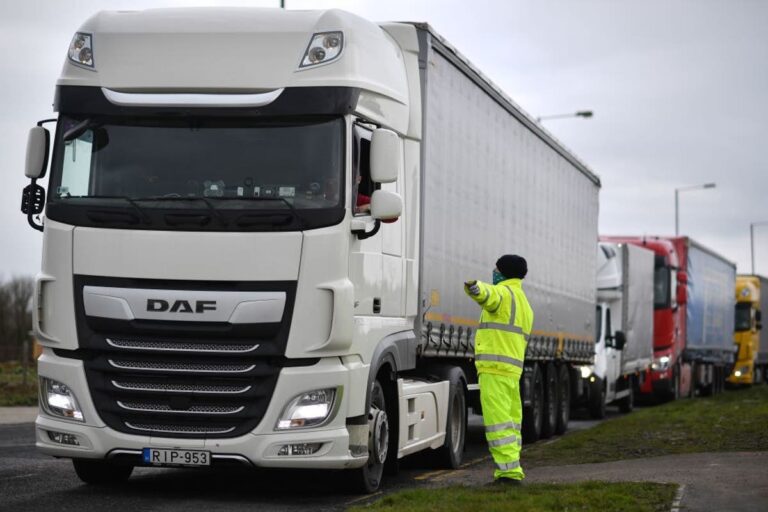Driver's Medical Assessment
Is all about your ability to practically prove your overall fitness to drive safely, which is assessed by an Occupational Health Nurse/Medical Adviser supported by the DVLA Medicals Standards for Fitness to Drive guidelines. The Medicals standards can be found on the government website.
https://www.gov.uk/government/publications/assessing-fitness-to-drive-a-guide-for-medical-professionals.
We offer different types of driver’s medical assessment at short notice for those interested in vocational driver’s license, should you require one
Driver's Medical Assessment
Is all about your ability to practically prove your overall fitness to drive safely, which is assessed by an Occupational Health Nurse/Medical Adviser supported by the DVLA Medicals Standards for Fitness to Drive guidelines. The Medicals standards can be found on the government website.
https://www.gov.uk/government/publications/assessing-fitness-to-drive-a-guide-for-medical-professionals.
We offer different types of driver’s medical assessment at short notice for those interested in vocational driver’s license, should you require one
What Is A Vocational Driving Licence?

This type of driving license entitles the holder to drive vehicles in categories C, D, or subcategories C1, or D1 (collectively known as Group 2). A full category B license (known as Group 1) must be held before application for a provisional license can be made to drive a Group 2 vehicle.
To be eligible for vocational driver’s medical assessment, you will provide relevant DVLA documents to verify training to operate any of the below listed type of vocational vehicles;
- Vehicles weighing between 3.5 and 7.5 tones (Group C1).
- Heavy goods Vehicle or Large Good Vehicles (HGV or LGV)
- Passenger-carrying vehicles between 9 and 16 passenger seats (Group D1, usually minibuses).
- Forklift trucks as per HSE recommendations.
- Taxi drivers
- Driving clients or colleagues as part of their regular duties.
What Does Medical Assessment Entails?
This Medical Assessment will consist of the following basic medical check of your fitness to drive Tests:
- Medical Health Questionnaire
- Vision assessment
- Blood Pressure assessment
- Height, Weight and BMI assessment
- Urine analysis
- Audiology hearing Test if indicated
- Physician/Occupational nurse assisted completion of D4 form with your responses to relevant questions from the D4 form.
Frequency Of Medical Assessment
This is usually in line with DVLA requirements, HSE suggests
- Before commencing an employment and applying for provisional license
- Five-yearly intervals from age 45years
- Every five years until the age of 65years
- After the age of 65years, the medical has to be completed every year
VALUABLE TIPS FOR YOU TO KNOWS
The D4 medical form is valid for four months. It is essential that it reaches the DVLA within four months of the medical assessment. After 4 months it becomes invalid, for both the driver and vehicle.
The assessor who will be assessing you will need a full list of medication you are currently taking so if you could bring a list with you that would be much appreciated.
If you are diabetic and use insulin you are able to hold a group 2 DVLA licence. You will need to visit a diabetes Consultant and get a statement every year. Do kindly bring along your latest report from the consultant when attending for the assessment. Your consultant will be constantly assessing fitness levels and checking to see if you are checking your blood levels. You will need to use a machine to record your sugar levels for the last three months. You will also need to demonstrate you have a good understanding of diabetes and you will have to sign a declaration.
It depends on the medication you are using as they have been new regulations put in place since 2016. You are required to test your blood at least twice a day and if you are driving that day will have to test your blood two hours before driving.
If you have had a fit the DVLA may not take away your licence, however, if have epileptic fits you would lose your licence for a minimum of ten years. Different rules apply to different types of lost consciousness and we advise you to speak to one of our Specialists for more information.
In 2013 the DVLA changed the regulations in regards to testing eyesight with and without contact lenses or glasses. Our Specialists will test your vision with and without your glasses and contact lenses under DVLA regulations. If you need to wear contact lenses and glasses to complete the vision assessment you will still pass the medical assessment. If you want a taxi medical assessment you will not need to have your eyesight tested without contacts or glasses.
The DVLA divide anxiety and depression into a minor or serious category.
The minor category is described as “Very minor short-lived illnesses of anxiety or depression without significant memory or concentration problems, agitation, behavioural disturbance, or suicidal thoughts”. The more serious category is defined as “More severe anxiety states or depressive illnesses with significant memory or concentration problems, agitation, behavioural disturbance, or suicidal thoughts.”
If you are in a minor category, you do not need to tell the DVLA or Licensing Authorities and it will not affect your entitlement to hold a driving licence provided that any medication is not causing any problems with driving.
However, for the more serious category, the DVLA will generally suspend a person’s group 2 licence (or not give a licence to a new applicant) until the person has been well and stable for 6 months, and until they are satisfied that the medication is not causing any side-effects which could interfere with alertness or concentration, and a driving medical test is taken.
This information is a general summary of various government services and the DVLA guidelines rather than an exact and full quotation.
